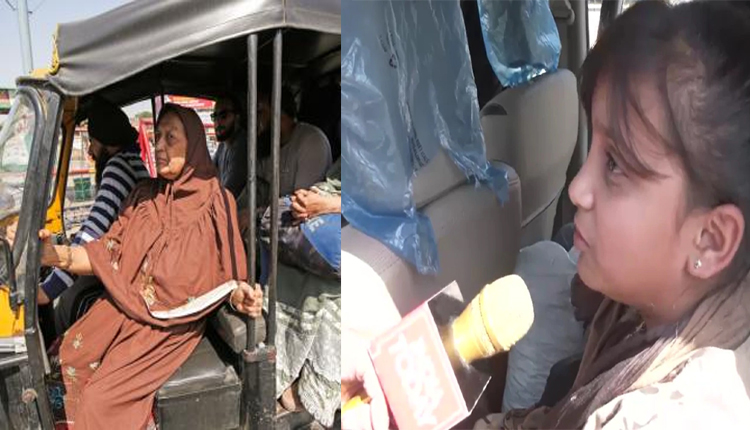Amritsar: Zainab, a Pakistani national who was 11 years old, said goodbye through tears at the Attari-Wagah border as border officials forced her mother away from her while taking Zainab and Zenish away. The Pakistani sisters arrived in Delhi last month to spend time with their grandmother but became entangled in diplomatic tensions that started after the Pahalgam terrorist attack killed 26 civilians. The Indian order requiring all Pakistani nationals to depart by April 27, 2025, has created unbearable split-ups for families who face such traumatic circumstances.
At the border Zainab expressed her devastation to media reporters when she said, “It’s really difficult to stay without my mother.” My heart is broken.” Zainab explained her desperate pleas to her mother, who possesses an Indian passport, but received no response because government instructions banned her departure. With her eyes full of tears, Zainab revealed that they would travel home without her mother after visiting Delhi for Naani. Zenish expressed her deep distress by saying, “I will not stay here when my mother is not present,” during their border crossing into Pakistan.
This family experience demonstrates the wider consequences of India’s security reaction to the Pahalgam attack carried out by The Resistance Front (TRF), which operates as an offshoot of Lashkar-e-Taiba. Through its claim that Pakistan supports terrorism, the Modi administration implemented three actions, including a treaty suspension of the Indus Waters Treaty, border trade closures at Attari-Wagah, and the citizenship expulsion of Pakistani nationals. Union Home Minister Amit Shah mandated states to carry out the directive, which resulted in 537 Pakistani citizens leaving through Attari from April 24 to 27, when 1,387 Indians came back from Pakistan.
The family of Mohammad Imran from Karachi went through parallel difficulties similar to others under similar circumstances. The Indian authorities denied Sharmeen and her 18-year residency in Pakistan access to rejoin her family there because of her Indian citizenship. The situation has become impossible, as Imran described it to journalists before he sought help from Prime Minister Narendra Modi. The child Alyan made an emotional plea at the border for permission for his mother to travel to Pakistan.
The Indian government expanded departure options for Pakistani visitors using medical visas until April 29, 2025, so they could pass through the Attari borders until May 1. Refusing to follow border restrictions may lead to deportation alongside other possible legal consequences. Various X users display conflicting opinions about these border expulsions on social media platforms because they view them as excessive yet support authorities based on national security concerns. A social media post attacked the overall scenario, accusing Pakistani nationals of abusing welfare system benefits without providing any supporting facts.
Families endure intolerable mental stress while going through this extended bureaucratic process. The vital economic connection through the border remains shut, which threatens to damage the local trade sector to the extent of Rs 3,886.53 crore this year. Children like Zainab and Zenish experience the overwhelming pain of separation even though the United Nations, along with other international bodies, request countries to exercise caution to avoid an escalation because they believe this would negatively impact children.



Comments are closed.